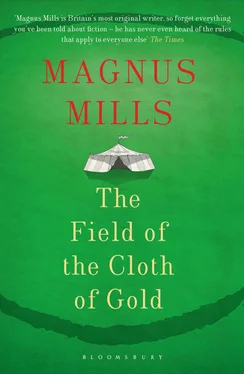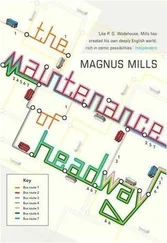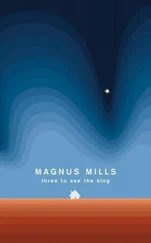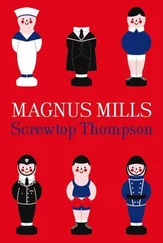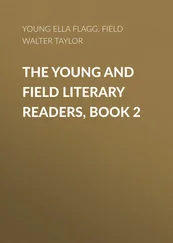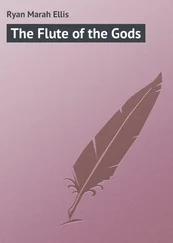Despite his sombre manner, Hen could be perfectly agreeable company, and I liked to think he saw me in a similar light. It was clear from the beginning that he preferred to stay mostly in the west. He rarely ventured into the other parts of the field, but his knowledge of our surroundings was second to none. It was Hen, for example, who pointed out that the field had a slope.
‘Oh, it’s hardly anything,’ he said. ‘Barely perceptible, but it’s there alright: a gradual declivity from north to south.’
I had to admit it was something I’d been unaware of. In fact, only by squinting across the field at ground level was I able to detect any sign of this slope, so gentle was its character. Later, out of sheer curiosity, I took a stroll to the far north. When finally I turned and looked southward, I had a definite feeling of being slightly higher up than when I started. Hen was proved to be quite correct.
Actually, I found it interesting to see the field laid out before me like this. Situated within the bend of the river, it was effectively separated from all the adjacent fields. The wilderness in the north acted as an additional boundary, and together these factors created a distinct sense of seclusion. It was as if our field had been deliberately set aside in order to fulfil some exalted purpose. No wonder we thought of it as somewhere special: the place where momentous events would unfold and come to fruition.
I noticed, however, that the quality of the grass deteriorated the further up the field I progressed. Throughout the north it was coarse and dry, a striking contrast with the verdant south, and presumably a direct consequence of the slope. The land drained from north to south, which meant that the south received more than its fair share of rainwater. Viewed from a northern perspective, this seemed like an injustice.
With these thoughts in mind I wandered down into the south-east. I still harboured the intention of moving there in due course, and I wanted to know if the ground had begun to dry out. I had my eye on a luscious spot within easy reach of the river, and which looked particularly attractive today with the sun shining brightly; yet when I approached I discovered somebody else had beaten me to it. A faint impression in the grass told me another tent had been there until fairly recently. It was already starting to fade but the evidence was unmistakable: I estimated it would take another week before it vanished altogether. In the meantime there was no question of pitching my tent in the same location, so with disappointment I postponed my plans once again.
The remarkable thing about this other tent, though, was its shape: closer examination revealed that the impression in the grass was a perfect octagon. I tried to picture an octagonal tent standing all alone in the south-east, and suddenly I felt a surge of indignation rising up inside me. Having to relinquish the prime position was tiresome enough, but the idea of losing it to some interloper with a fancy, octagonal tent verged on outrageous!
These sentiments were hardly lessened when I considered the practical shortcomings of such a tent. Surely, I reasoned, it would be entirely unsuited to all but the mildest of weather conditions: if it didn’t collapse under its own weight, then no doubt it would be blown away at the first hint of a storm. The field, after all, could be a harsh billet at the turn of the season. What it required was a robust, low tent of the kind favoured by frontiersmen. Stout canvas would be the fabric of choice. The octagonal tent, by contrast, was most likely fashioned from an untested cloth chosen more for its appearance than its durability. Perhaps, of course, this was the very reason it was no longer in place: maybe its owners had realized their folly, and retreated to more temperate climes. If so, then they were plainly ignorant of the field’s importance; otherwise they wouldn’t have abandoned it quite so readily.
As I pondered these arguments it struck me that my feelings on the subject were both contrary and illogical. In one instant I’d conjured up an imaginary tent, passed judgement on it and wished it out of existence. In other words, I was displaying all the symptoms of acute envy. Somewhere at the back of my mind I knew I was profoundly jealous of the octagonal tent. Without question it must have been a magnificent sight as it stood overlooking the river, and, to tell the truth, part of me regretted never seeing it.
Nonetheless, I was cross with Hen for failing to mention the other tent. If I’d known about it earlier I could have made alternative plans; instead of which, I’d spent a futile fortnight waiting to move to the south-east. It was alright for Hen: he was fully established in the field, whereas my base was merely temporary. I was finding it all rather frustrating. Hen’s silence was utterly unfathomable, yet there was nothing to be gained from falling out with him. So I decided for the moment simply to let the matter lie.
The following morning I awoke early and peered out of my doorway. The sun had barely risen, but to my surprise I spotted Hen patrolling the south-east corner of the field. He hardly ever strayed from his western redoubt, so I wondered what could have tempted him so far. Initially I assumed he was taking a stroll by the river, and that he’d roamed a little further than he intended. After a while, however, I noticed he was inspecting the ground beneath his feet. All at once his purpose became clear: he was studying the impression in the grass. He walked round and round it, bobbing down now and again to get a closer look, and appeared totally preoccupied. For several minutes I observed him with interest, then abruptly he turned and came striding back towards the west. I closed my doorway, and reflected on what I’d seen. The explanation for Hen’s early-morning foray now seemed obvious. His claim to be the first in the field was directly undermined by the impression in the grass; accordingly, the sooner it faded from sight the better. I knew for a fact that it hadn’t faded, not properly, and so for the present he was destined to be disappointed. I had no idea, of course, if he’d ever laid eyes on the octagonal tent; perhaps he only had a mental picture, just as I did. What was certain was that we had a common desire: for different reasons, both of us wanted all traces of the other tent erased for good; then, maybe, normal life could be resumed.
Judging by Hen’s behaviour, he was rapidly running out of patience. The next afternoon he made yet another trip to the south-east. This time he approached his objective from an oblique angle. After a long excursion he went ambling down the field from the north, paused casually to inspect the ground, then continued on his way. He must have known that I could see his every move, and plainly he was trying to disguise his actions. He needn’t have bothered really, but I had no wish to cause an upset so I willingly played along with the pretence: when next we spoke I carefully avoided any reference to his jaunts in the south-east.
In any case, I had a feeling that the question of the other tent would resolve itself naturally in due course. The weather continued to improve, and in consequence the grass was thriving. My own tent was already nestling in a soft bed of greenery which thickened visibly by the day, and it was the same story across the whole field. A similar notion must have occurred to Hen. As the grass grew his restlessness diminished in proportion until, at last, he ceased his wanderings. Hen’s precious claim was finally safe from scrutiny. Now it was my turn to be impatient. Another slothful week had gone by, and inertia was beginning to set in. Tomorrow, I decided, I would definitely make my move.
Unusually for me, I didn’t sleep well that night. Possibly it was the humid conditions keeping me awake, but more likely it was the jumbled dreams which always come with upheaval. Either way, I drifted in and out of my slumbers until the small hours; then, sometime around dawn, I became aware of men’s voices passing close by my tent. They were fairly indistinct at first, but slowly my ears attuned, and I recognized Hen’s formal tones.
Читать дальше
